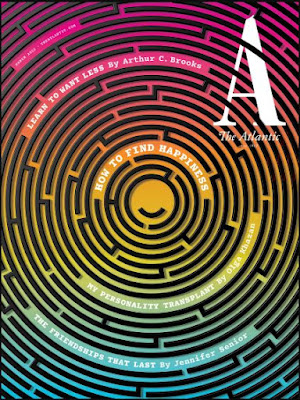 |
| Cover of The Atlantic, March 2022. |
Here are two articles from the Atlantic that are thought-provoking, though I disagree with some points in each one.
1. Anne Applebaum, "There Is No Liberal World Order" - excerpt:
For 30 years, Western oil and gas companies piled into Russia, partnering with Russian oligarchs who had openly stolen the assets they controlled. Western financial institutions did lucrative business in Russia too, setting up systems to allow those same Russian kleptocrats to export their stolen money and keep it parked, anonymously, in Western property and banks. We convinced ourselves that there was no harm in enriching dictators and their cronies. Trade, we imagined, would transform our trading partners. Wealth would bring liberalism. Capitalism would bring democracy—and democracy would bring peace. . . .
Even when the Russians, having grown rich on the kleptocracy we facilitated, bought Western politicians, funded far-right extremist movements, and ran disinformation campaigns during American and European democratic elections, the leaders of America and Europe still refused to take them seriously. It was just some posts on Facebook; so what? We didn’t believe that we were at war with Russia. We believed, instead, that we were safe and free, protected by treaties, by border guarantees, and by the norms and rules of the liberal world order.
2. Olga Khazan, "Why People Are Acting so Weird" - excerpt:
The pandemic loosened ties between people: Kids stopped going to school; their parents stopped going to work; parishioners stopped going to church; people stopped gathering, in general. Sociologists think all of this isolation shifted the way we behave. “We’re more likely to break rules when our bonds to society are weakened,” Robert Sampson, a Harvard sociologist who studies social disorder, told me. “When we become untethered, we tend to prioritize our own private interests over those of others or the public."
The turn-of-the-20th-century scholar Émile Durkheim called this state anomie, or a lack of social norms that leads to lawlessness. “We are moral beings to the extent that we are social beings,” Durkheim wrote. In the past two years, we have stopped being social, and in many cases we have stopped being moral, too.
-----




























No comments:
Post a Comment